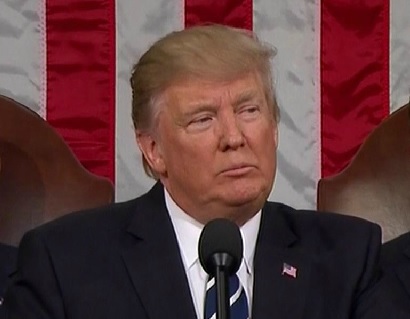US universities ask foreign students to return before Trump inauguration

Credit: C-SPAN
Advisories issued based on previous experience with travel bans that were enacted in the first Trump Administration in 2016
By Arun Kumar
US universities are advising international students and staff to return to campus before President-elect Donald Trump takes office in January, amid concerns over his plans for mass deportations.
More than 400,000 undocumented students are enrolled in US higher education, BBC reported citing the Higher Ed Immigration Portal.
READ: Vivek Ramaswamy defends Trump plan for mass deportations (November 14th, 2024)
The University of Massachusetts issued a travel advisory to its international students and faculty, encouraging them to “strongly consider” returning to campus from winter break before Trump takes office on January 20. The university’s Office of Global Affairs made clear that it’s “not a requirement or mandate from UMass, nor is it based on any current US government policy or recommendation.”
However, given that a new presidential administration can enact new policies on their first day in office, and based on previous experience with travel bans that were enacted in the first Trump Administration in 2016, it was making “this advisory out of an abundance of caution to hopefully prevent any possible travel disruption to members of our international community.”
Undergraduate international students who live on-campus will be permitted to move back in early if needed, it added.
The Massachusetts Institute of Technology and Wesleyan University have also issued travel advisories, urging students and staff to return to the US before inauguration day.
At Yale University, the Office of International Students and Scholars hosted a webinar this month fielding concerns from students about potential immigration policy shifts, the student newspaper reported.
This includes foreign-born students who are protected by the Deferred Action for Childhood Arrivals (DACA) policy. Trump has attempted to end the Obama-era programme, which shielded over half a million migrants who came to the US as children from deportation.
However, Ozan Say, the director of the Office of International Students and Scholars — OISS — at Yale, said he is not certain whether the new Congress will pass sweeping immigration laws.
The Republican majority is slim, he said, and legislative immigration reforms in the past have required bipartisan support. Rather, he expects most changes in immigration policy to happen through executive orders and government agencies.
Answering a question about possible changes in the approval process of the H-1B visa –– given to college-educated foreign professionals –– to a more restrictive, “elite” route, he said as much as that sounds appealing to scholars at Yale, the policy may not necessarily be helpful.
“The actual way it might happen might mean that only the highest-paid categories get priority,” he said. “That was something they definitely proposed or were theorizing about, having a kind of tier system and giving the H-1Bs to the highest paid jobs, and that might actually not work well for some of our students who are stuck with entry-level jobs.”
Say also added that it’s unlikely that a previously-issued visa will be revoked from immigrants. He thinks the Trump administration will aim for less legally-challenged routes to limit immigration, such as deporting people at the border.
Say said the OISS will continue to provide timely advice and support students and scholars navigate their immigration pathways regardless of what changes the new administration brings.
“As we have done under any administration before, we will always support our international community and do all that is possible to ensure Yale and the U.S. remains a welcoming place for international students and scholars,” he said.
“All international students are worried right now,” University of Colorado Denver professor Chloe East told the BBC. “Students are incredibly overwhelmed and stressed out right now as a result of the uncertainty around immigration,” he said. “A lot of students have concerns about their visas and whether they’ll be allowed to continue their education.”
Prof East said students from Asia, particularly China, are feeling “uncertainty” about US-China relations under Trump.

